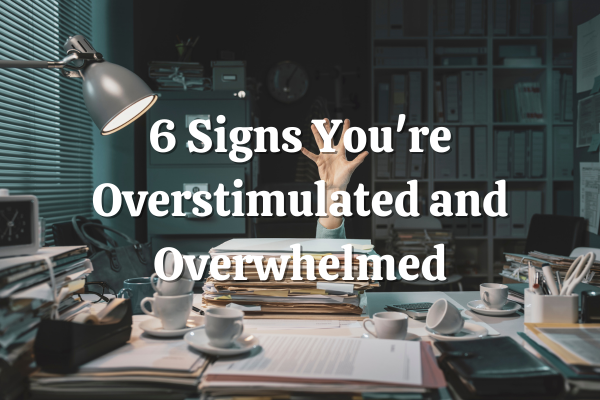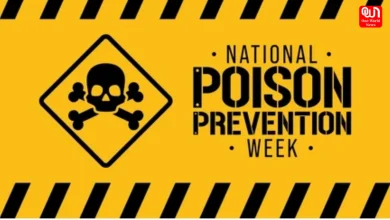What is overstimulation? 6 signs to know and ways to manage
Uncover signs of overstimulation and explore effective strategies for balance. From mindfulness to setting boundaries, learn to manage overwhelm.

Introduction: In our fast-paced and information-rich world, overstimulation has become a prevalent experience for many individuals. The constant bombardment of stimuli, be it through sensory overload, information saturation, or emotional intensity, can lead to overwhelming feelings and a loss of focus. In this article, we will delve into the signs of overstimulation and explore effective strategies to manage this common yet challenging condition.
Read more: Naturally Straight: Explore the Ways to straighten up your hair, the right way
Understanding Overstimulation: Overstimulation occurs when an individual is exposed to an excessive amount of information that surpasses their capacity to process it healthily. This can manifest in various ways, such as sensory overload, emotional turmoil, and an inability to concentrate. According to therapist Carolyn Rubenstein, everyone may encounter overstimulation, but some individuals face it regularly due to factors like work pressure, social saturation, or heightened sensitivity.
Signs of Overstimulation:
Heightened Sensitivity: Overstimulation often triggers heightened sensitivity to stimuli, including noise, lights, or crowds. Individuals in this state may find even the slightest sound or light overwhelming, indicating a need for a more controlled environment.
Feeling Drained: The overwhelming influx of information can leave individuals feeling mentally and physically drained. The constant effort to process vast amounts of data simultaneously leads to frustration and a sense of exhaustion.
Physical Sensations: Physical discomforts, such as headaches, muscle tension, and nausea, can be manifestations of overstimulation. Being attuned to these bodily signals is crucial in understanding how to alleviate them and regain a sense of well-being.

Irritated or Agitated: Overstimulation can amplify emotional responses, causing individuals to become easily irritated or agitated. Small triggers that might be manageable under normal circumstances can provoke rash reactions in an overstimulated state.
Struggle to Concentrate: The influx of information overwhelms the mind, making it challenging to concentrate or focus on tasks. This can hinder productivity and lead to feelings of frustration and inadequacy.
Flood of Emotions: Overstimulation can result in a flood of emotions that may be challenging to address simultaneously. Managing these intense feelings becomes essential for maintaining emotional well-being
Strategies for Managing Overstimulation:
Find a Calm Space: When experiencing overstimulation, it is crucial to find a calm and quiet space where one can gather their thoughts and relax the nervous system. This space provides an opportunity to decompress and regain a sense of control.
Minimize Exposure to Lights and Noise: To alleviate sensory overload, reducing exposure to excessive lights and noise is essential. This can involve stepping away from crowded or noisy environments and creating a more controlled setting to promote relaxation.
Prioritize Self-Care Activities: Engaging in self-care activities is vital for maintaining mental and emotional well-being. This can include activities such as meditation, deep breathing exercises, or pursuing hobbies that bring joy and relaxation.
Establish Boundaries: Setting boundaries in both personal and professional spheres helps manage the influx of information. Learning to say no to additional commitments and taking breaks when needed is crucial for preventing overstimulation.
Practice Mindfulness: Mindfulness techniques, such as meditation and mindful breathing, can be powerful tools for managing overstimulation. These practices help individuals stay present in the moment and cultivate a sense of calm amidst chaos.
Read more: How To Indulge In Hot Oil Hair Treatment At Home
Seek Professional Support: If overstimulation becomes a persistent challenge, seeking support from a mental health professional can be beneficial. They can provide guidance, coping strategies, and a safe space to explore the underlying causes of overstimulation.
We’re now on WhatsApp. Click to join.
Conclusion: In a world filled with constant stimulation, recognizing the signs of overstimulation and implementing effective management strategies is crucial for maintaining overall well-being. By understanding the triggers and adopting proactive approaches, individuals can navigate through overwhelming experiences and foster a healthier balance in their lives.
Like this post?
Register at One World News to never miss out on videos, celeb interviews, and best reads.








